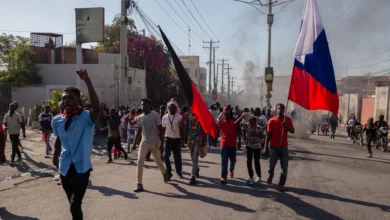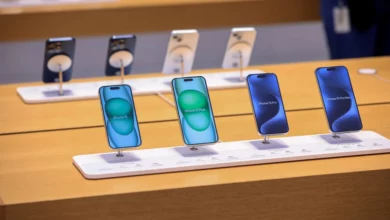A senior EU envoy urged seven east African countries on Thursday to settle differences with Egypt and Sudan over sharing the waters of the Nile river and refrain from signing a new deal on their own.
Marc Franco, who heads the European Union delegation in Egypt, issued the appeal as Burundi, Democratic Republic of Congo, Ethiopia, Kenya, Rwanda, Tanzania and Uganda were expected to launch the signing on Friday of a new water-sharing deal.
The agreement would replace a 1959 accord between Egypt and Sudan that gives them control of more than 90 percent of the water flow.
It would “not be a very good idea for seven countries to sign a document at this stage,” Franco told a news conference in Cairo.
A separate deal would “make the political problems that exist worse,” Franco said, urging all countries concerned “to bridge the gaps” and “see what can be done to find a compromise.”
The seven upstream countries have been negotiating for years with Egypt and Sudan to clinch a more equitable agreement but talks have failed to produce any fruit.
They have agreed on terms for a new pact and could ink the deal when it opens for signature on Friday in Entebbe.
“What we are doing is launching the signing. Any country that feels they cannot sign now but may be ready to sign later will have one year,” Jennifer Namuyangu Byakatonda, Uganda’s state minister for water told AFP in Kampala.
Byakatonda insisted that the upstream countries will not capitulate to demands for further negotiations.
“Negotiations are closed,” she said. “The terms will not change.”
She told Reuters, however that “the signing of the agreement will pave way for the opening of the Permanent Nile Commission to be based at Entebbe and this commission actually might help us resolve some of the contentious issues between us and Egypt and Sudan”.
The upstream countries want to implement irrigation and hydropower projects in consultation with Egypt and Sudan but Cairo could exercise the veto power it was given by a 1929 colonial-era treaty with Britain.
Egypt and Sudan are afraid their water supply will be severely reduced if the seven other Nile users divert the river with domestic irrigation and hydropower projects.
Egyptian Foreign Minister Ahmed Abul Gheit warned in statements published on Saturday that Cairo’s water rights were a “red line” and threatened legal action if a unilateral deal is reached.
African countries on the upper reaches of the River Nile plan to push their demand for changes in the allocation of its waters, saying Egypt gets too great a share, a minister said.




